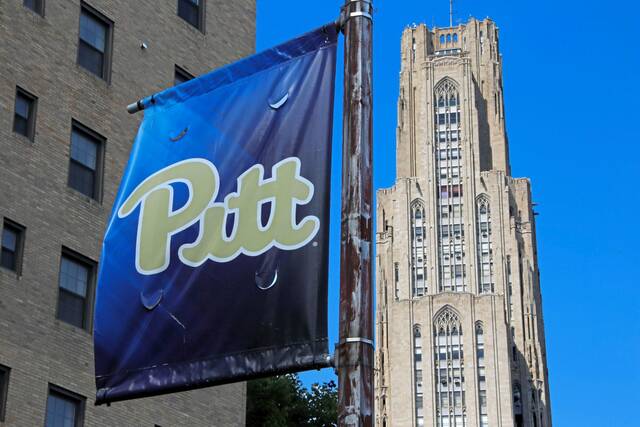The University of Pittsburgh is set to narrowly escape with its state funding after months of heated back-and-forth between Pitt and House Republicans over the university’s fetal tissue research.
The state House voted Wednesday night to pass Pitt’s appropriation. Lawmakers reworded an agricultural funding bill to provide Pitt’s funding and avert a conditional amendment that would have withheld funding from state-related universities that conduct fetal tissue research. This would have directly affected Pitt, whose researchers use fetal tissue for medical-related studies.
The bill that included Pitt’s funding needed to gain approval of two-thirds of the House; 145 of 200 present representatives voted for it. Nearly half of Republicans — 55 representatives — voted against the bill.
Stirrings of debate over Pitt’s funding have been on the back burner for years and came to a head in recent months. Some local and national Republicans say the university’s fetal tissue research includes illegal and unethical practices.
The issue is one of the reasons the 2022-23 budget isn’t on time. Because lawmakers could not reach an agreement by June 30, the state will lose some of its spending authority.
The appropriations bill now heads to the Senate and Gov. Tom Wolf for final approval. Both are expected to greenlight funding.
Pitt officials remain hopeful lawmakers will follow a six-decade precedent and provide funding for the university.
“The University of Pittsburgh devotes every dollar of the general support appropriation it receives from the state to help support a tuition discount for Pennsylvania students and families,” a university statement reads. “We’re optimistic the legislature will preserve this investment in our students.”
House Republicans gave one last push Wednesday to stop Pitt’s fetal tissue research. The GOP added an amendment to a broadband bill that would prevent state-related universities from receiving funding if they engage in fetal tissue research. The amendment passed in a 109-91 vote, falling almost completely down party lines.
However, Wolf could veto the bill, and House Republicans would need two-thirds of the House and Senate to overturn a veto.
Related:
• 89 Republican congressmen urge U.S. inspector general to evaluate Pitt’s fetal tissue research• Pennsylvania House targets colleges' fetal research in bill
• Pa. Republicans reconsider Pitt funding over fetal tissue research, college voucher program
The funding for Pennsylvania’s four state-related universities — Pitt, Penn State, Temple University and Lincoln University — was clumped in one bill this year. Typically, each state-related university receives funding through its own appropriations bill.
During the 2022-23 budget year, the state-related universities are expected to receive general support funding in the amount of:Pitt: Over $151 million
Penn State: Over $242 million
Temple: Over $158 million
Lincoln: Over $15 million
Those numbers are in line with funding amounts from 2020-21 and 2021-22. Wolf’s proposed 5% funding increases to these universities will seemingly be unsuccessful.
The universities use this general support funding to provide tuition discounts to their in-state students. The average Pitt in-state student saves $15,000 compared to their out-of-state counterparts. About $8,900 of that comes from the state and $6,100 is from Pitt.
House Republicans had said if Pitt lost its funding, the money would be redirected to Pitt students who are state residents. Efforts to withhold Pitt’s funding were partially led by Rep. Eric Nelson, R-Hempfield, who wants to gradually create a statewide college voucher program.
Under Nelson’s plans, Pennsylvania would redirect the general support funding from Pitt, Penn State and Temple to in-state students at all universities, private colleges, community colleges and technical schools in Pennsylvania.
Nelson, who voted against the appropriations bill Wednesday night, expressed hope that more lawmakers are weary about funding the “big three.”
“We will continue to press forward for direct funding for families,” he said.








